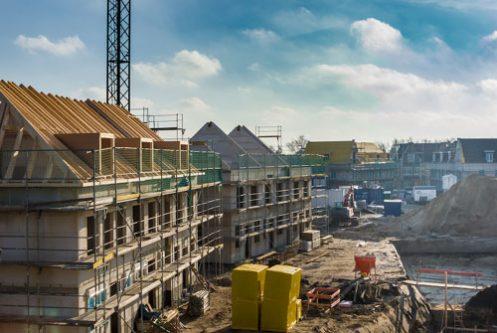
JCT non-negligence insurance is vital to the majority of large scale builds. If you are a business owner, then you know that there are always risks associated with running your company. One of the biggest risks is the possibility of being sued for something that you didn’t do wrong.
That’s where JCT Non-Negligence Insurance comes in. On this page, we will discuss what this type of insurance is, and how it can protect your business from legal liability.
What is JCT Insurance?
JCT Non-Negligence Insurance is a type of insurance that protects your business from legal action that can arise even when there hasn’t been any negligence on the part of the contractor. This type of insurance can be vital for businesses, because it helps to protect them from the financial ruin that legal proceedings can cause.
This insurance is important for anyone involved in a building project where a JCT Contract exists. It is also known as JCT Contract Insurance. The insurance protects the client, developers, and contractors from any non-negligence insurance claims that may arise.
What is a JCT Contract ?
A JCT Contract is a binding agreement that sets out the responsibilities of all parties involved in a construction project. The agreement clearly specifies the roles and obligations of each party, as well as the timeline and costs associated with each stage of the project. This type of building contract is essential for ensuring a smooth and successful construction process.
Why you Need a JCT Contract
A JCT Contract can help protect you from non-negligence claims on certain types of builds. It allocates risk fairly and is recognised by developers, contractors, and clients. This type of agreement can speed up the early stages of a project. Once the agreement is in place, the build can go ahead with the responsibilities of everyone involved clearly defined. This can help avoid potential problems down the road and keep your project on track.
However things do still sometimes go wrong. If you are found to be at fault, your contractors public liability insurance will typically cover the cost of repairs.
However, if negligence cannot be proven, non-negligence insurance will step in and protect you. This is especially important when undertaking construction works near party walls, as there is always a risk of damage to adjoining or surrounding property.
If you are underpinning or piling close to another structure, the risk is even greater. Non-negligence insurance will ensure that you are covered in the event of any damage, regardless of who is at fault.
The contractor is required to take out this insurance in order to protect the employer in the event of a claim. JCT 21.2.1 refers to the clause in JCT Contracts that requires this insurance. It is also known as ‘JCT 6.5.1’. The numbering of the clause has changed, but the meaning remains the same.
Different Types of JCT Insurance
 The main types of JCT insurance are as follows:
The main types of JCT insurance are as follows:
JCT 21.2.1 protects you from non-negligent incidents during the build process. This can include things like lowering groundwater levels, or other unforeseen events that no one could be held liable for. However, any remedial work necessary would still need to be paid for. JCT 21.2.1 would cover these costs, even if the contractor was not at fault.
JCT 5.4A is a policy that names the property owner and contractor as joint Policyholders. This is different from the contractor’s own ‘All Risks’ policy, in which some policies do already include the developer as a matter of course. We can advise in checking details like this before signing any agreement.
JCT 5.4B is similar to JCT 5.4A but in this case the developer and contractor are required to be named on the building insurance.
JCT 5.4C is a further variation which requires that the contractor be added to the home policy, which effectively creates a joint policy for the building. While this might get complicated, we’re here to help simplify the process for you.
Do I Need this Type of Insurance?
JCT Non-Negligence Insurance should be added to your insurance cover for all large scale construction contracts that involve excavations, piling or demolition, neighbouring third party property or structures and/or contractual requirement.
Causes of non-negligent injury or damage
Some of the causes of non-negligent injury or damage could be:
- vibrations
- excavations
- changes in groundwater levels
- weakening or removal of support
Any of these could lead to cracking, subsidence, heave or even collapse of neighbouring buildings. While the contractor may not have done anything wrong, the damage still needs to be paid for and this is where JCT Non-Negligence Insurance comes in.
What is excluded?
 It is just as important to know what exclusions this type of insurance policy may have as it is to understand what the insurance does cover you for. The following are typically excluded from this kind of policy:
It is just as important to know what exclusions this type of insurance policy may have as it is to understand what the insurance does cover you for. The following are typically excluded from this kind of policy:
- Loss or damage arising from the contractor’s negligence, which should be insured under Contractors Public Liability Insurance.
- Loss or damage arising from the design of the works, which should be covered under the Designer’s Professional Indemnity Insurance.
- Minor damage as a result of the works that is unavoidable. This can’t be insured against.
Getting the right JCT Insurance
You may be wondering how to make sure you’re getting the right JCT Insurance for your own circumstances. It is true that it can be confusing, but that’s where an experienced JCT Insurance provider who deals with this type of thing all the time comes in.
At Construction Insure, we pride ourselves on our industry knowledge and experience. We’ll ask the right questions to make sure you get exactly the JCT Insurance cover you need. We want to ensure that you are fully protected against any potential claims and will ensure that the JCT Insurance you get is right for you. We can arrange this type of insurance for you on a standalone basis or it can be endorsed by the contractor’s insurer onto the contractor’s annual policy.
If you need to take out JCT Non-Negligence Insurance, or have any questions about this type of cover, please get in touch. We would be more than happy to discuss your specific needs and provide you with a tailored quote.

